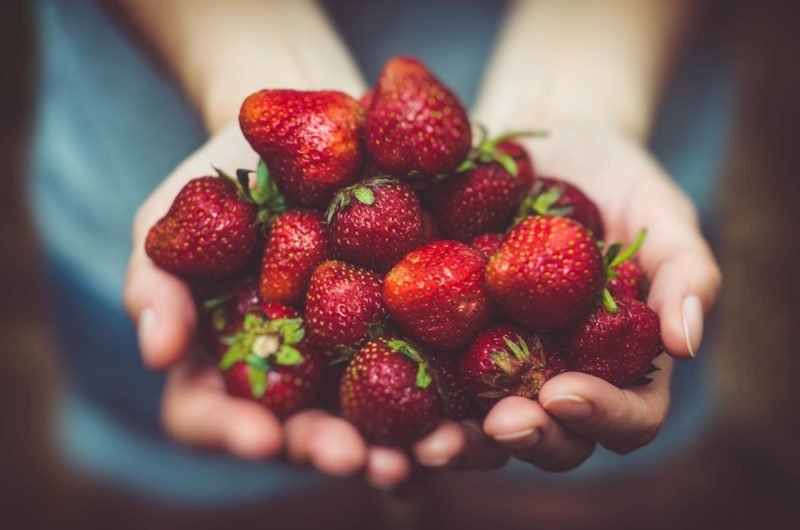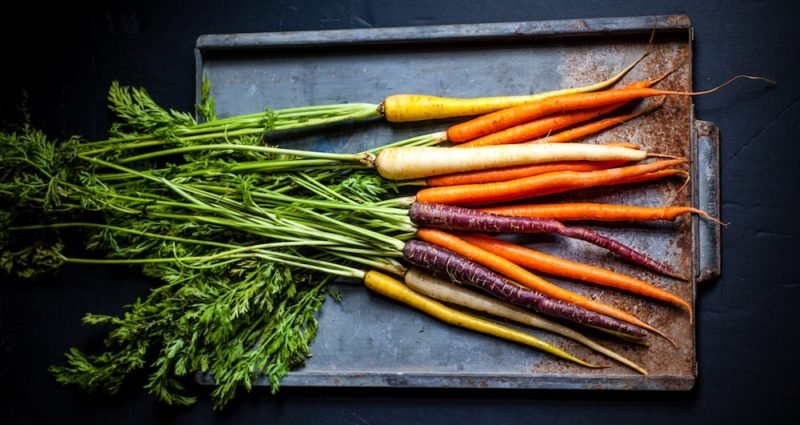
If you subscribe to my e-newsletter and e-magazine, and read the newsletter I sent out yesterday, you know that I’m feeling a little strange about not having a vegetable garden for the first time in 13 years! Fortunately, I have access to grocery stores with good produce departments—and to farmers markets—for fresh summer produce!
When you try to eat as local and seasonal as possible in northern climates like ours in the Pacific Northwest, summer is a gift. Our Northwest summer produce is bursting with flavor and. Even better, it’s packed with nutrients. Your taste buds get what they want and your body gets what it needs. Talk about a win-win! Here’s how you benefit from some key fruits and vegetables that are in season right now:
Berries and cherries
The base for so many so many memorable summer deserts, these delicate fruits are as healthful as they come. A perfect summer breakfast is to make your own parfaits with plain Greek yogurt, berries and granola. Blueberries are the nutritional standout in this group, as they are absolutely filled with antioxidants. Plus, the plant pigments that give these fruits their beautiful, saturated color—anthocyanins—aren’t just for good looks. They may fight the chronic inflammation that is linked to heart disease, diabetes and other chronic diseases.
Cruciferous vegetables
Broccoli, cabbage, kale and Brussels sprouts are nutritional superstars, and their cousins cauliflower, kohlrabi and collard greens are no slouches, either. Use as a base for chopped salads, slaws or crudité platters. On cooler days, roasting or stir-frying brings out their fabulous flavor. Enjoying these versatile veggies often will bring a rich variety of vitamins, minerals and the disease-fighting plant compounds phytochemicals to your plate.

Carrots and beets
These colorful, nutritious root vegetables are delicious raw in grated salads. There are few things better, or prettier, than roasted beets, cooled, peeled and sliced. If using golden and red beets, roast them separately and combine right before serving to avoid color bleed. Or, serve them separately on a platter, drizzled with vinaigrette, cheese (blue, feta or goat) and nuts (walnuts or pistachios). Carrots are rich in potassium, fiber, beta-carotene and other carotenoids (antioxidant compounds found in plants). Beets have lots of potassium and some magnesium. Beet greens are even more nutritious than their roots, with lots of vitamins and minerals, and can be used in green salads when small, or cooked when larger.
Leafy greens
A simple tossed salad is a perfect accompaniment to grilled meats, chicken and fish. When the weather is hot, a main-dish salad is just the thing. Just combine abundant greens with an array of sliced, shredded or chopped veggies, toss with a vinaigrette and top with some healthy protein and fat. All greens are sources of vitamins and some minerals, but the darker green the better!

Fresh herbs
These fantastic flavor enhancers are often overlooked when it comes to nutrition. That’s a pity, because they are amazing sources of health-promoting phytochemicals. Add fresh herbs to salads and egg dishes, and use them in marinades and rubs before your next barbecue. One of the best tastes of summer is a simple salad of tomatoes, fresh mozzarella and basil. A simple homemade pesto (see recipe here) knocks any store bought version out of the water.
Whether you shop for your summer produce or grow your own, eat up and enjoy!
Disclaimer: All information provided here is of a general nature and is furnished only for educational purposes. This information is not to be taken as medical or other health advice pertaining to an individual’s specific health or medical condition. You agree that the use of this information is at your own risk.
Hi, I’m Carrie Dennett, MPH, RDN, a weight-inclusive registered dietitian, nutrition therapist and body image counselor. I offer compassionate, individualized care for adults of all ages, shapes, sizes and genders who want to break free from eating disorders, disordered eating or chronic dieting. If you need to learn how to manage IBS symptoms with food, or improve your nutrition and lifestyle habits to help manage a current health concern or simply support your overall health and well-being, I help people with that, too.
Need 1-on-1 help for your nutrition, eating, or body image concerns? Schedule a free 20-minute Discovery Call to talk about how I can help you and explore if we’re a good fit! I’m in-network with Regence BCBS, FirstChoice Health and Providence Health Plan, and can bill Blue Cross and/or Blue Shield insurances in many states. If I don’t take your insurance, I can help you seek reimbursement on your own. To learn more, explore my insurance and services areas page.
 Print This Post
Print This Post






